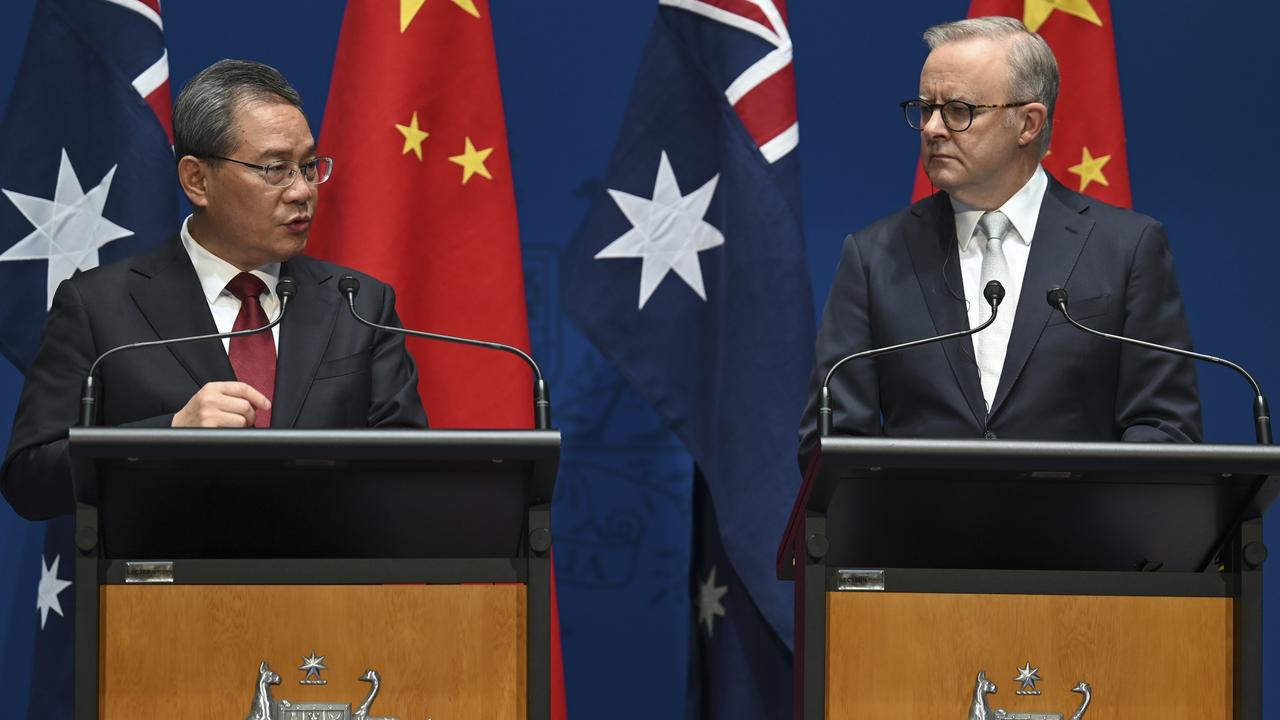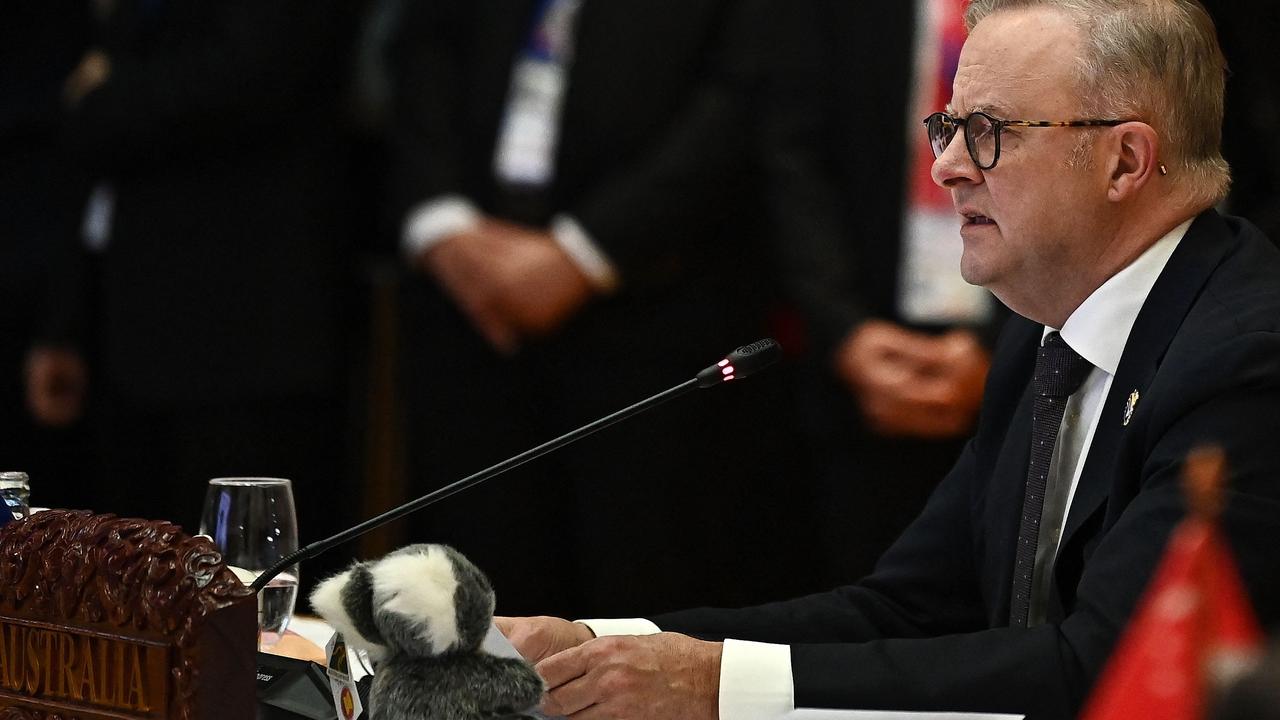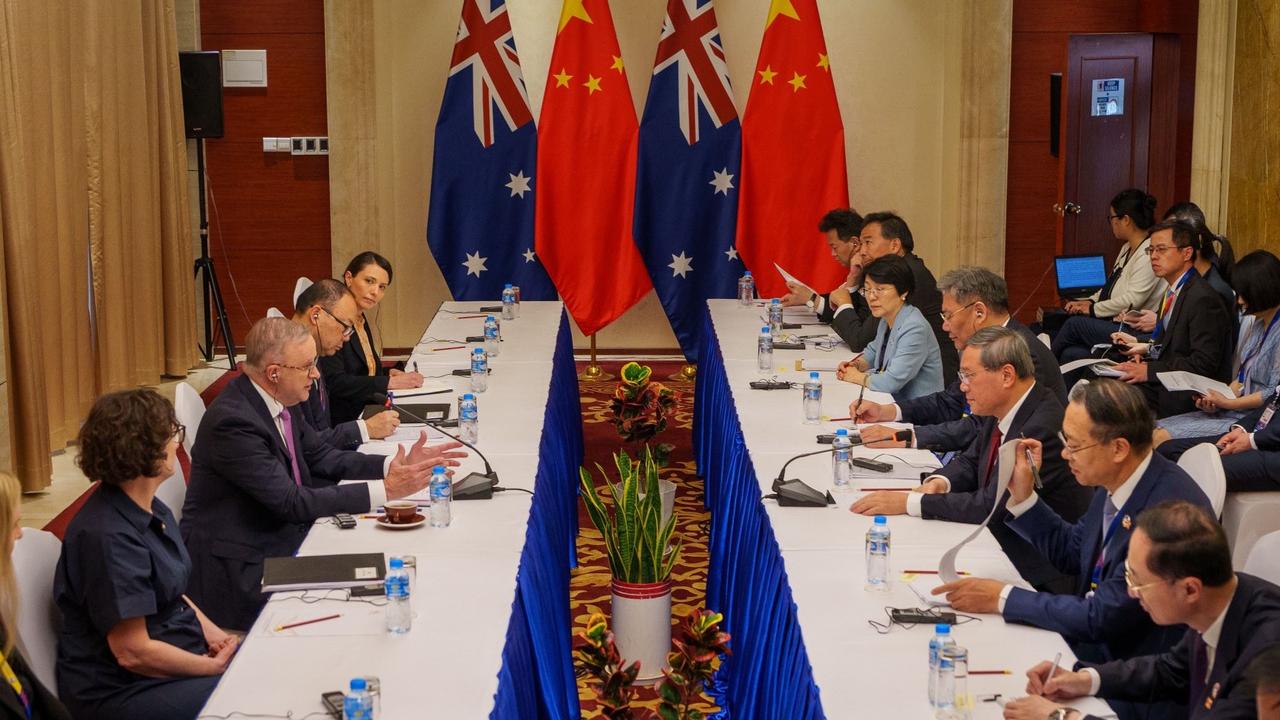Anthony Albanese is in Laos for major regional leaders summit
Anthony Albanese has announced the last of the major trade issues with China had been resolved while in Laos for a regional economic summit.
China has agreed to lift all restrictions on Australia’s live lobster trade “by the end of this year”, Anthony Albanese says.
The announcement comes after the Prime Minister met with Chinese Premier Li Qiang on the sidelines of a major economic summit in Laos on Thursday.
“We have continued to stabilise the relationship without compromising on any of Australia’s national interests,” Mr Albanese told reporters in the Laotian capital Vientiane
“I’m pleased to announce that Premier Li and I have agreed on a timetable to resume full lobster trade by the end of this year.”
Chinese customs authorities blocked imports of live Australian lobsters in late 2020, claiming they identified excessive levels of heavy metals.

But the move was broadly interpreted as an act of trade war in response to the former Coalition government’s backing of an inquiry into the origins of Covid-19.
Painful as it was for Australia’s lobster trade, so too was it difficult for Chinese consumers, who faced higher prices for their much-loved malacostracans.
The Albanese government has sought to balance multilateral efforts to contain China’s regional influence while pursuing trade normalisation.
Despite tensions playing out in military posturing between Canberra and Beijing, the strategy has cleared trade barriers, unlocking an extra $20bn in Australian exports headed for Chinese ports.
Trade barriers on other Australian-made products including beef, barley, cotton and wine have been progressively lifted by China since 2022.
ALBO TALKS TRADE WITH KEY GROUP
Mr Albanese is in “the fastest-growing region of the world” championing Australia’s trade offerings at a summit with the Association of Southeast Asian Nations (ASEAN).
ASEAN is brimming with opportunities for Australian products, which often attract premium price tags in the economic union’s 10-member states.
He said in his address to the meeting on Thursday that Australia held ASEAN in “high regard” and wanted to work more with the organistion to improve security and prosperity.
“In Jakarta last year, I launched Australia’s Southeast Asia Economic Strategy to 2040, he said.
“We’ll be focusing on specific milestones at the event I am hosting for Australian and ASEAN businesses (on Friday).

“This is about Australian businesses making new partnerships in Southeast Asia to drive a new generation of jobs, trade and investment.
“Getting this right will benefit the businesses and citizens of every nation represented here.
“Because a fundamental principle of the ASEAN-Australia partnership is mutual benefit and we all gain from a regional economy that is more resilient and more connected.
“Just as we all prosper from the peace, stability and security that enables the free exchange of ideas, culture, technology and the strengthening of bonds in business, education and tourism.”
SHADOW OVER ASEAN
But Mr Albanese’s trade touting quest has been somewhat overshadowed by security threats from China, compounded by Canberra and Beijing competition for regional influence.
He said on Thursday he also spoke to the Chinese Premier about a range of other issues, including Beijing’s “destabilising actions in the South China Sea” and its recent testing of an intercontinental ballistic missile (ICBM).

China’s ICBM launch last month was its first such test in more than 40 years.
The Chinese military said it was “not directed at any country”, but ICBMs are primarily used as a delivery system for nuclear weapons, hence the regional apprehension.
Following the “routine” test, Australian and New Zealand warships sailed through the strait that separates Taiwan from China.
Beijing claims the democratically self-governed island as well as vast areas of the Taiwan Strait, which is considered international waters.
Mr Albanese will also meet the newly elected Taiwanese premier, Cho Jung-tai, in Laos.
Mr Albanese, who has likened talks with China to Cold War dialogue, said he reaffirmed Australia’s “support for rules that have kept our region stable and allowed it to prosper.”
“Continued dialogue provides the best pathway for Australia to advance our national interest, but also to advance peace and security in our region,” he said.





